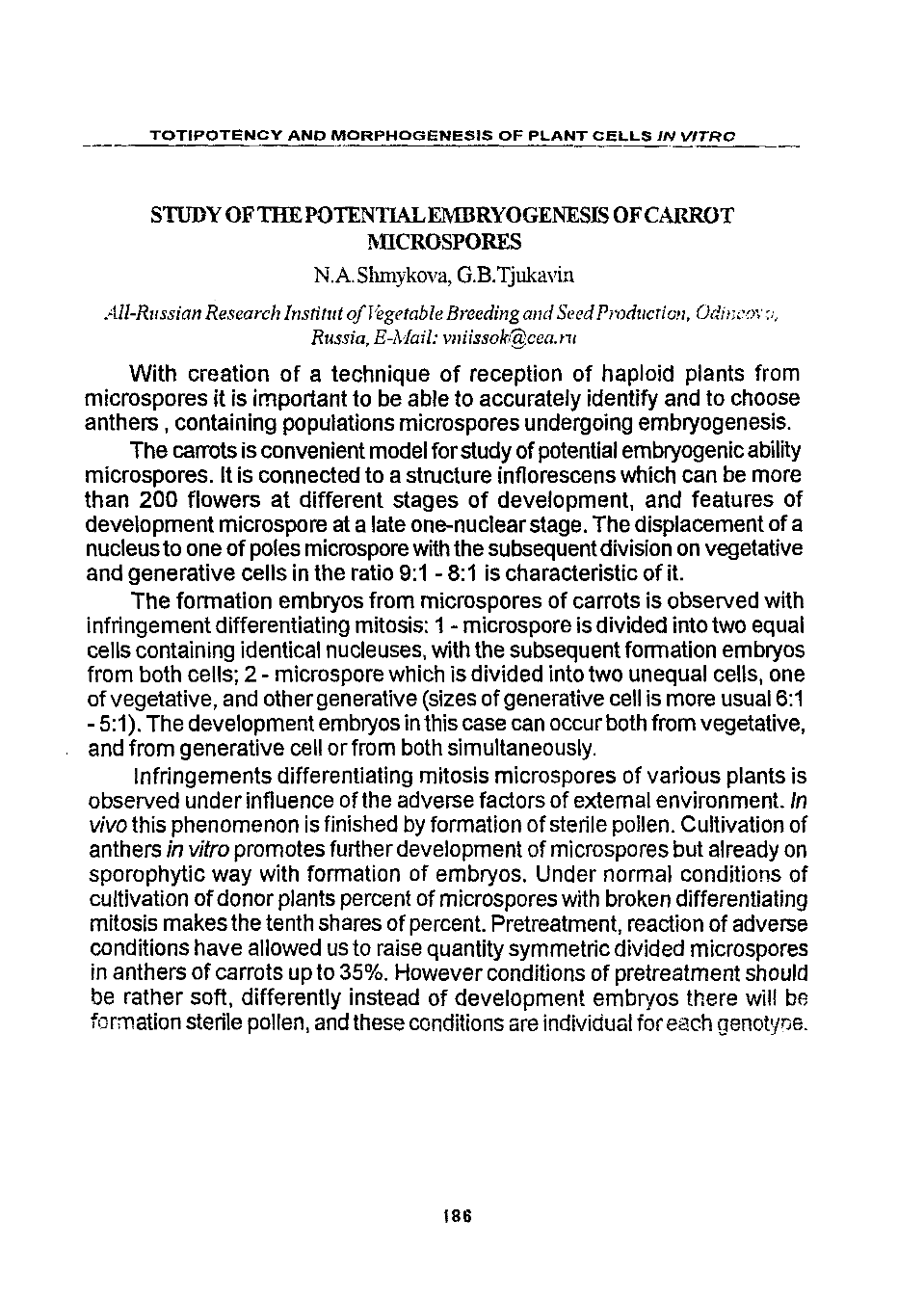

T O T IP O T E N C Y A N D M O R P H O G E N E S IS O F P L A N T C E L L S
IN V IT R O
STUDY OFTHE POTENTIALEMBRYOGENESIS OFCARROT
MICROSPORES
N.A.Shmykova, G.B.Tjukavin
All-RussianResearch Institut of VegetableBreeding and SeedProduction, Odincovo,
Russia, E-Mail: vniissok@
cea.ruW ith creation o f a technique o f reception of haploid plants from
microspores it is important to be able to accurately identify and to choose
anthers, containing populations microspores undergoing embryogenesis.
The carrots is convenient model for study of potential embryogenic ability
microspores. It is connected to a structure inflorescens which can be more
than 200 flowers at different stages o f development, and features of
development microspore at a late one-nuclearstage. The displacement of a
nucleus to one of poles microspore with the subsequent division on vegetative
and generative cells in the ratio 9:1 - 8:1 is characteristic of it.
The formation embryos from microspores of carrots is observed with
infringement differentiating mitosis: 1 - microspore is divided into two equal
cells containing identical nucleuses, with the subsequent formation embryos
from both cells; 2 - microspore which is divided into two unequal cells, one
of vegetative, and othergenerative (sizes of generative cell is more usual 6:1
- 5:1). The development embryos in this case can occur both from vegetative,
and from generative cell or from both simultaneously.
Infringements differentiating mitosis microspores of various plants is
observed under influence of the adverse factors of external environment.
In
vivo
this phenomenon is finished by formation of sterile pollen. Cultivation of
anthers
in vitro
promotes further development of microspores but already on
sporophytic way with formation of embryos. Under normal conditions of
cultivation of donor plants percent of microspores with broken differentiating
mitosis makes the tenth shares of percent. Pretreatment, reaction of adverse
conditions have allowed us to raise quantity symmetric divided microspores
in anthers of carrots up to 35%. However conditions of pretreatment should
be rather soft, differently instead of development embryos there will be
formation sterile pollen, and these conditions are individual for each genotype.
186
Научная электронная библиотека ЦНСХБ









